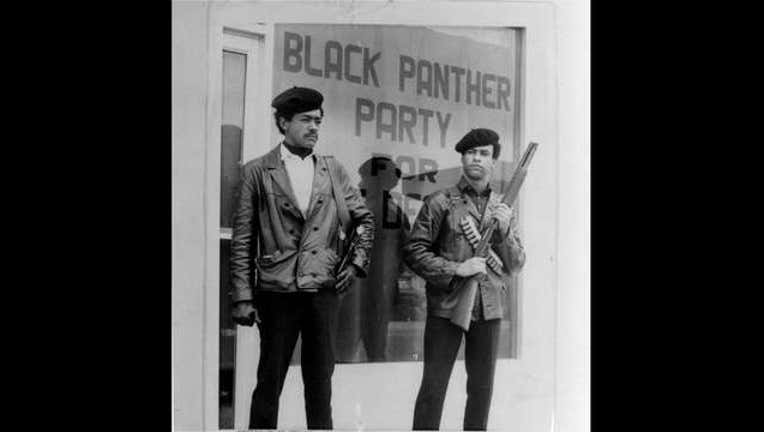Funding for Black Panther Party research project pulled

Credit: Associated Press.
OAKLAND, Calif. - Nearly $100,000 in National Park Service funding for a research project that would honor “the legacy of Black Panther Party activists and the San Francisco Bay Area communities they served,” has been scraped amid backlash from a national police organization.
The National Fraternal Order of Police, which represents more than 325,000 sworn police officers nationwide, wrote a letter to President Donald Trump last week expressing “outrage and shock” at learning the park service was in the process of awarding the funding to the University of California, Berkeley to commemorate the Oakland-based black power group.
According to a public notice on intent to award the funding, one goal was to “memorialize a history that brought meaning to lives far beyond the San Francisco Bay Area.”
“Mr. President, as far as we are concerned the only meaning they brought to any lives was grief to the families of their victims,’’ according to a letter from organization National President Chuck Canterbury.
Of particular concern was the fact that a Black Panther Party member was convicted of murdering National Park Service Ranger Kenneth Patrick in 1973 while he was on patrol at a national seashore near San Francisco.
National Park Service spokesman Craig Dalby said in an email Monday that a notice of funding availability for a project to study the Black Panther Party was posted on grants.gov, but the cooperative agreement was not finalized.
“After an additional review of the project, the NPS decided not to move forward with funding the project,’’ Dalby said.
Rep. Barbara Lee, D-Calif., called withdrawal of the funding “outrageous.”
The Black Panther Party was “an integral part of the civil rights movement and the public has a right to know their history,” Lee said. Lee worked with the group's school breakfast program years ago.
Lee, who represents Oakland, urged the park service and Interior Department to provide a full explanation of why funding for the project was dropped.
The Black Panthers formed in Oakland to defend African-Americans against police brutality and protect the rights of a downtrodden people to determine their own future. The party scared mainstream America with their calls for revolution that were at odds with Martin Luther King Jr.’s insistence on peaceful protest.
After the group launched armed patrols, California lawmakers repealed a law that allowed people to carry loaded weapons in public. The Panthers gained national attention when they carried guns into the state Capitol in protest.
Ula Y. Taylor, incoming chair of African American Studies at UC Berkeley, was to lead the research effort with help from four consultants, including Billy Jennings, a member of the Oakland Black Panther Party, who is the curator of the It’s About Time archive and website, which houses one of the largest collections of party memorabilia.
Neither Taylor nor Jennings responded to requests for comment Monday.
UC Berkeley spokesman Dan Mogulof said Monday the park service, not the university, has the answers to why the project was selected and why the money was pulled.
The Associated Press contributed to this report.

